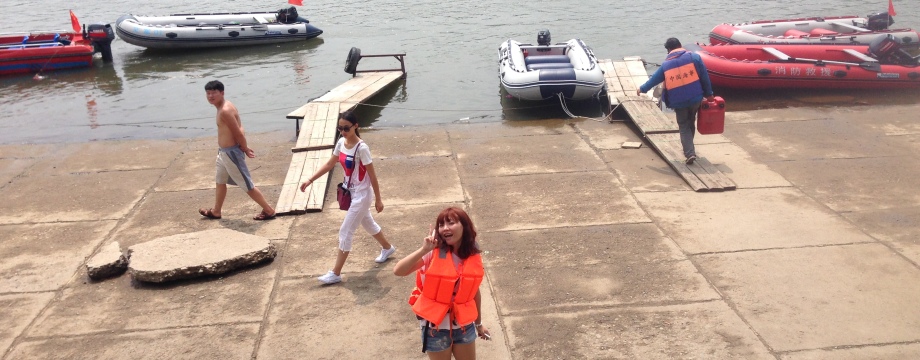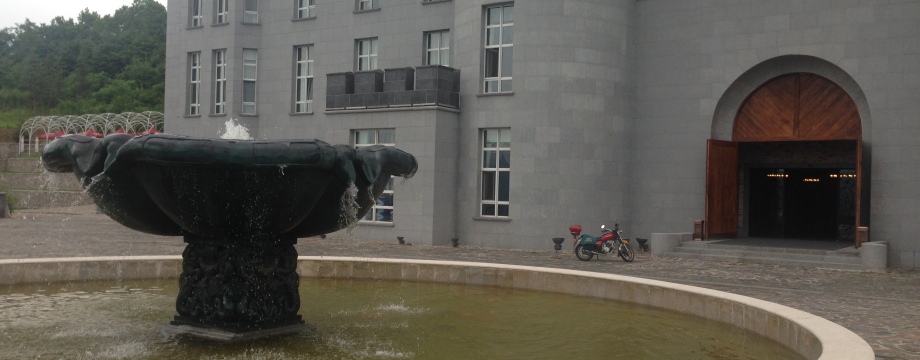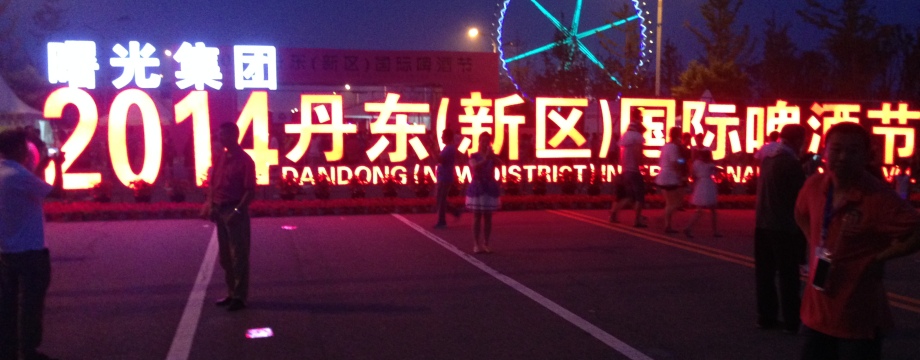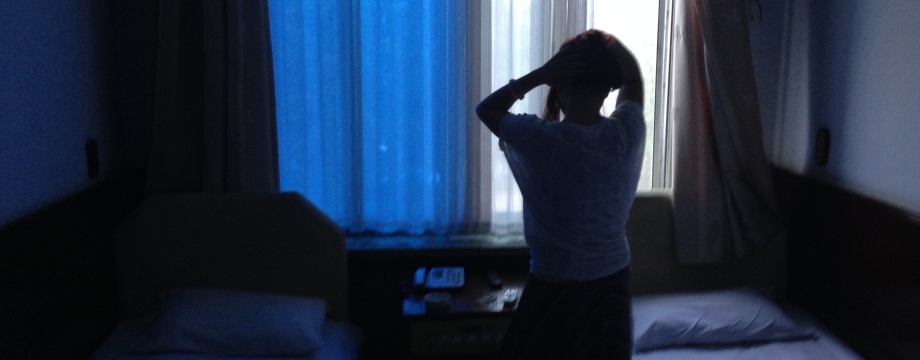The next stop on our tour along the Sino-Korean border was Linjiang. This is another city that lights up like Vegas at night. Only the Chinese built this one across from a small North Korean farming community.
The hotel we stayed in Linjiang was right next to the town square. It was a nice hotel, but nothing too special. There is a small island to the south of the city called Huandao. This place is set up for tourists and the thing to do here is to get a boat ride along the border. So we set out to find a boat. Crossing the bridge to the island you first see a statue of Chen Yun. He was an important Communist Party leader who used to live in Linjiang.
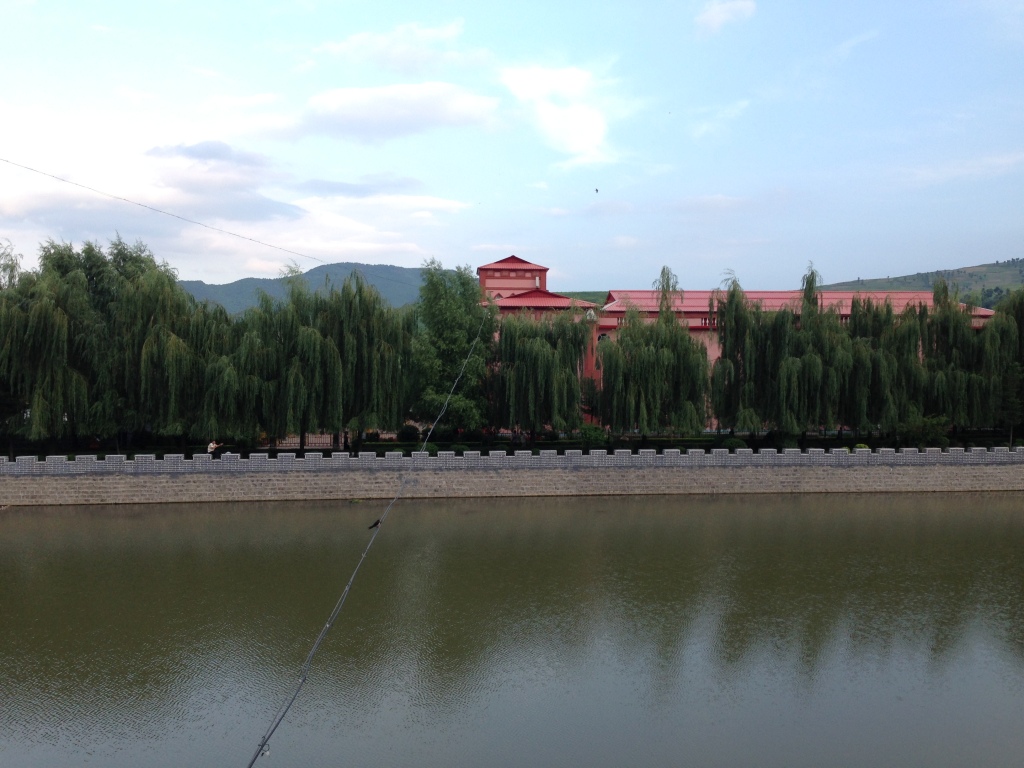
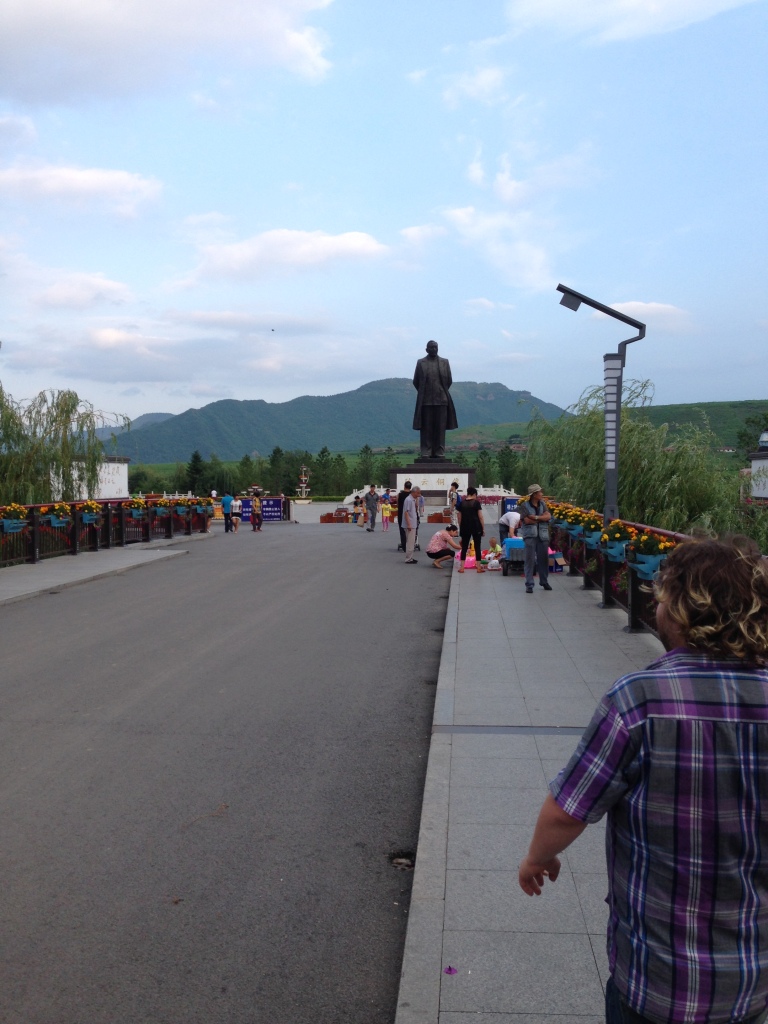
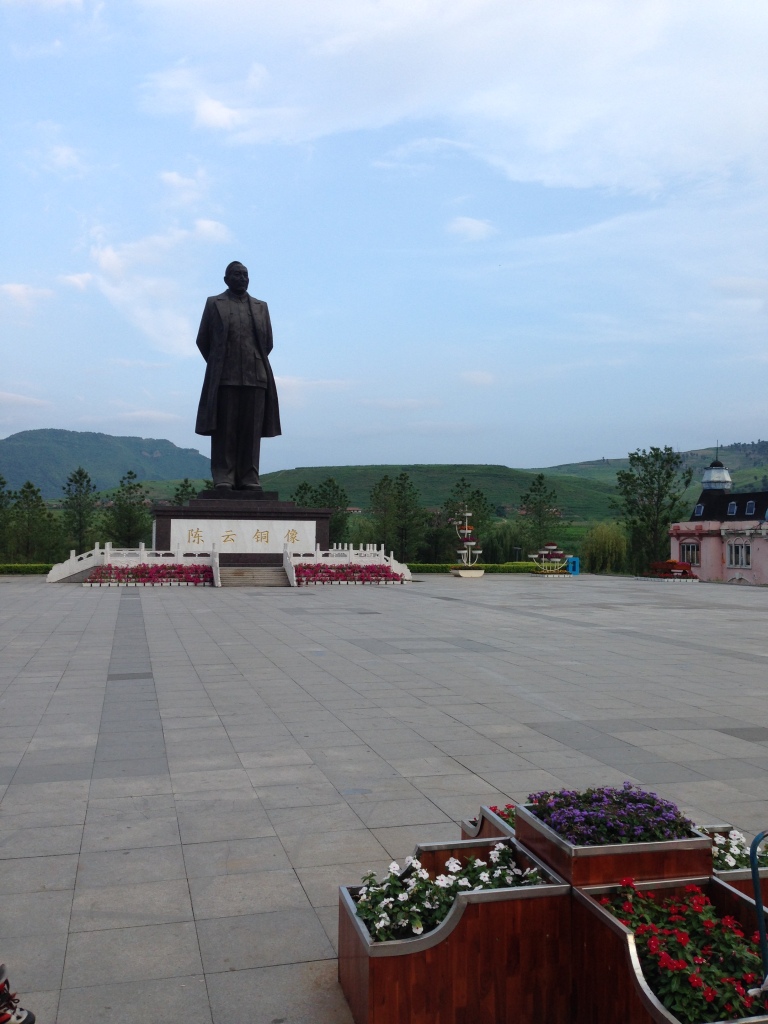
We found people selling the boat rides on the farthest side of the island. It turned out our friend knows one of the locals here, so they talked for a while. I listened in, trying to understand what they where saying. I think my Chinese still has a long way to go.
Across the Yalu river we could see North Korea. The only thing of interest was a small village which looked to be a farming community. I asked if they had boats as well. It turns out that North Koreans aren’t allowed boats here, only the Chinese. I wasn’t sure if the restriction came from China or the DPRK. Or both.
It was late afternoon so we decided to explore the island and come back the next day for our boat ride. Further down the river was a larger boat moored on the island. There were several tables set up and a kitchen was preparing food. We decided to see if we could get some beer. Our friend and I sat down and asked for a beer while Yi went off to take pictures.
In Linjiang foreign tourists aren’t common so they were happy to see us. The beers were 5 RMB (around 50 pence). The owner sat next to us and told us “Chinese pay 5 kuai, foreigners pay 6 kuai!”. We could tell he was joking as we had already paid someone else. We laughed and he joined us as we drank, asking us the usual questions tourists get asked. A girl sat at another table jumped up and asked for a picture with me. This sort of thing happens a lot outside of the major cities in China.
We polished off our beers and left to walk along the river bank. Large forested hills prevent you from seeing too far into Korea. I wondered if there was ever any real communication between the villagers and Linjiang. Probably not. Any illicit activities going on between the borders would surely happen somewhere less obvious.
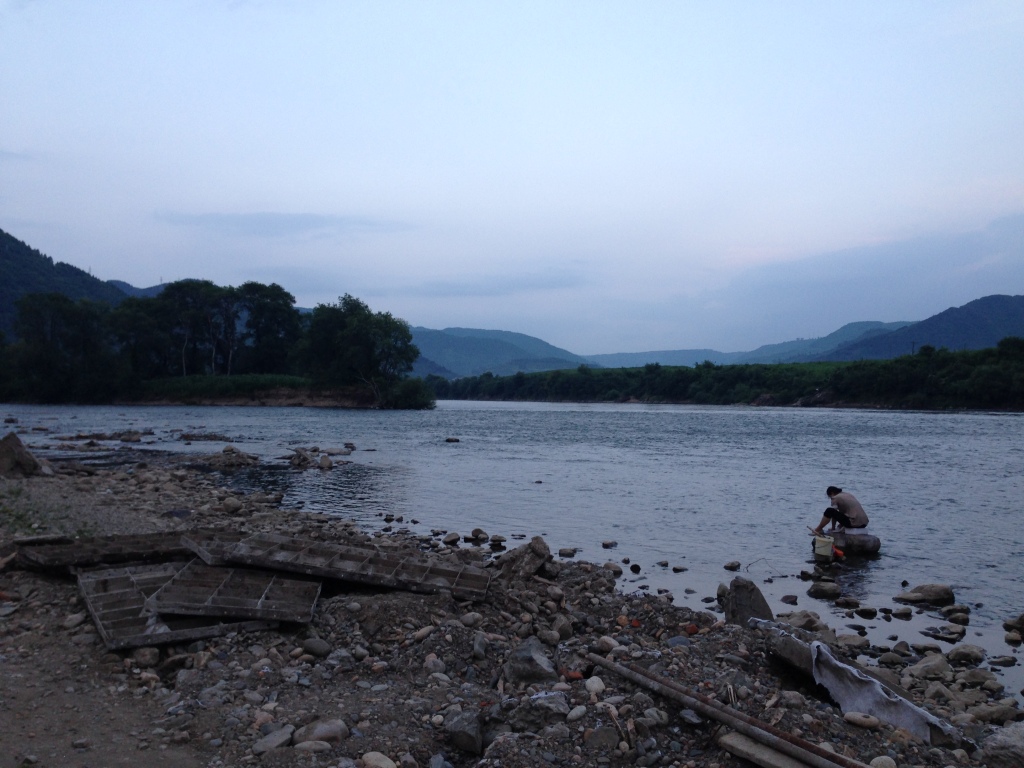
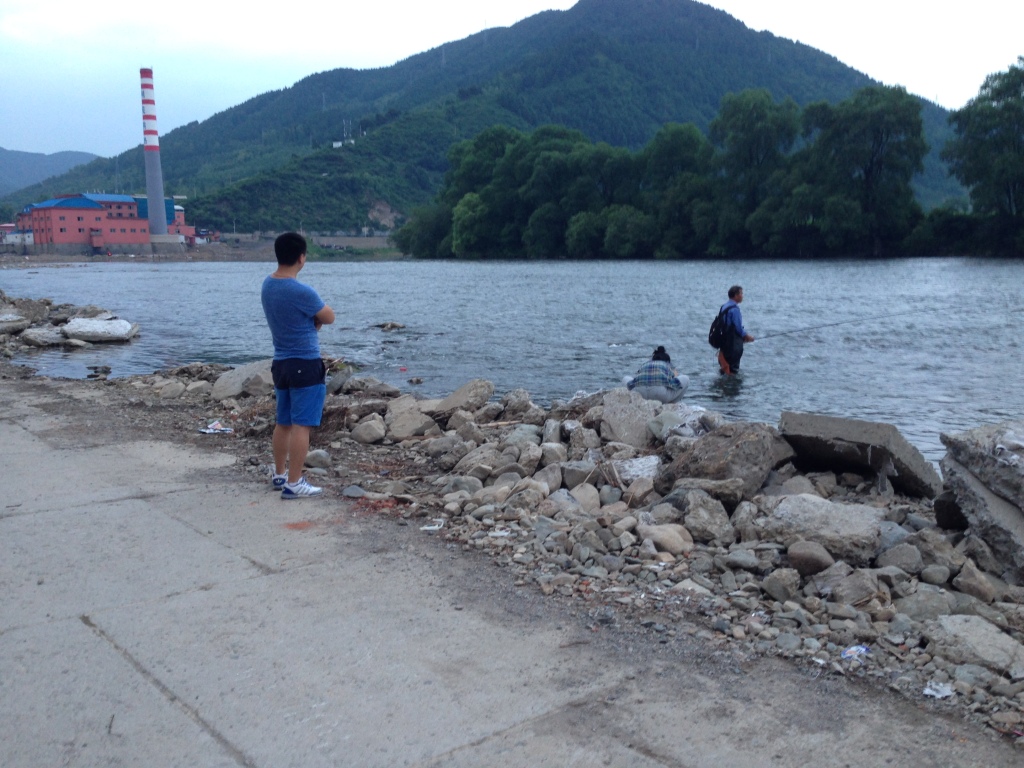
All along the bank several Linjiang locals were washing their clothes in the river. I got the impression that they did this because they preferred river-washed clothes. Much the same way we hang clothes out to dry in the sun in England rather than using a drying machine. The clothes smell nicer and don’t get damaged.
The sun set and darkness rose. Linjiang lit up like Christmas in Vegas. North Korea stayed in the darkness. It occurred to me their village may not have electricity, or at least not a large supply. With nothing more to see, we wandered back into town to get some food.
At night Linjiang has a large street market. There was more street food here than I had seen anywhere in China. I looked for the easy stuff: barbecued meat and/or noodles. My girlfriend went for some of the more local street food. We ate our fill then spent the rest of the night in a small bar we managed to find near our hotel.
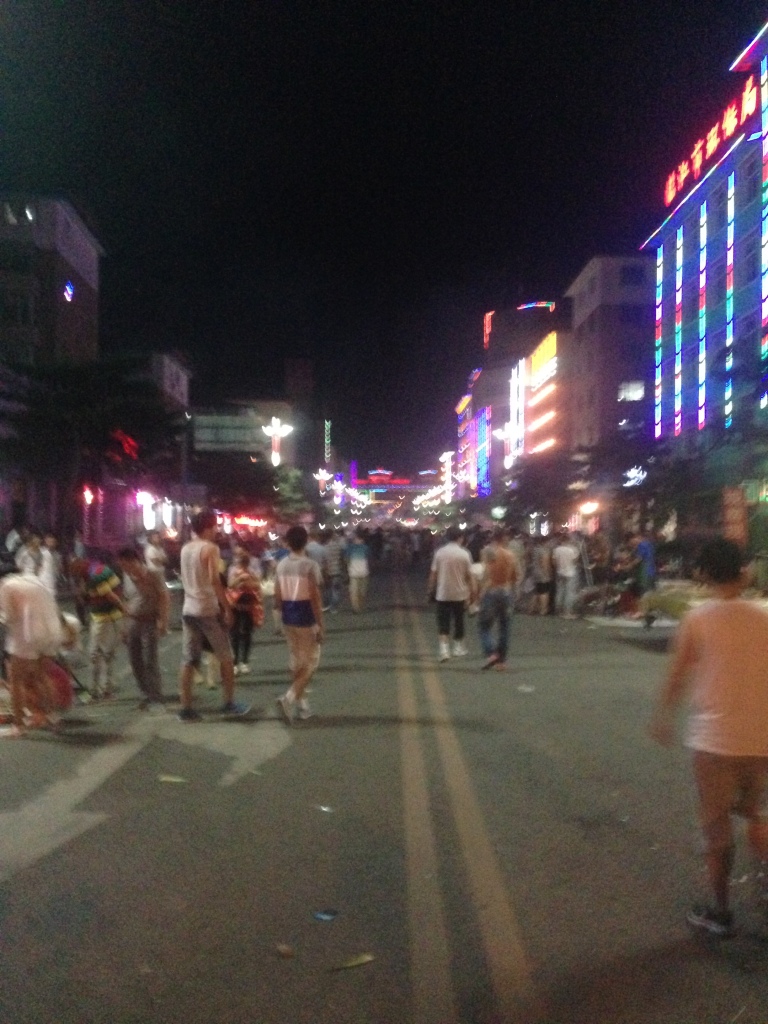
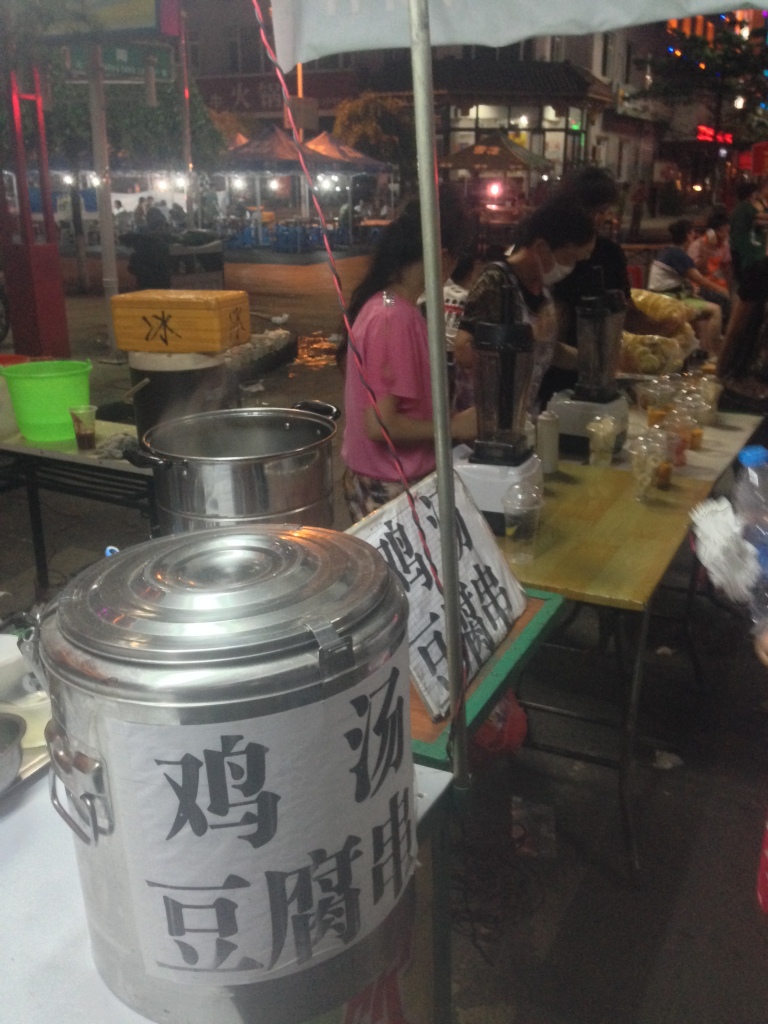
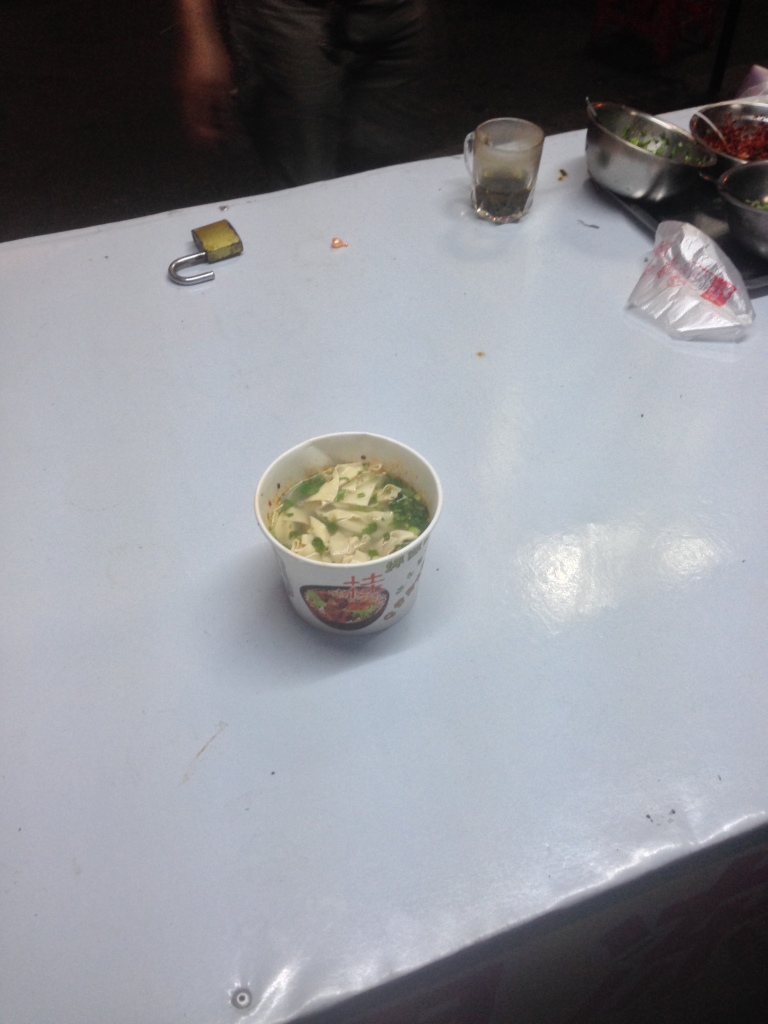
The next day we had a solid plan. Yi has a friend whose uncle lives near Linjiang so he had invited us to lunch. So we were to ride the boat then go have lunch with him. We didn’t have much time before we met him so we went straight to the boats.
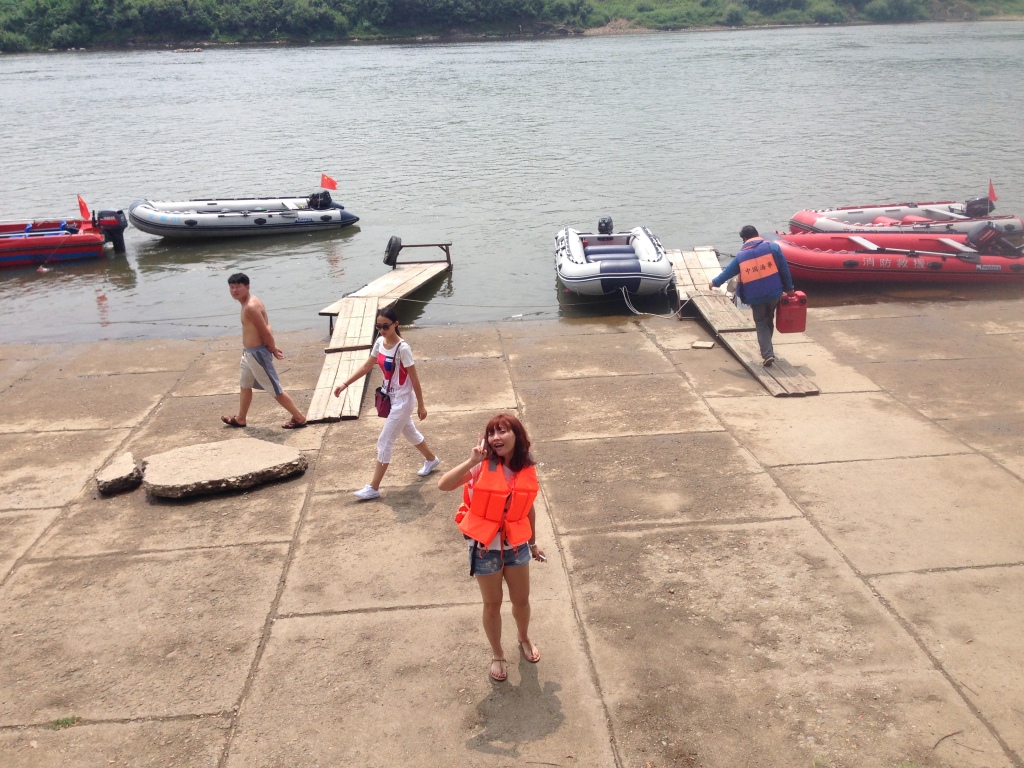
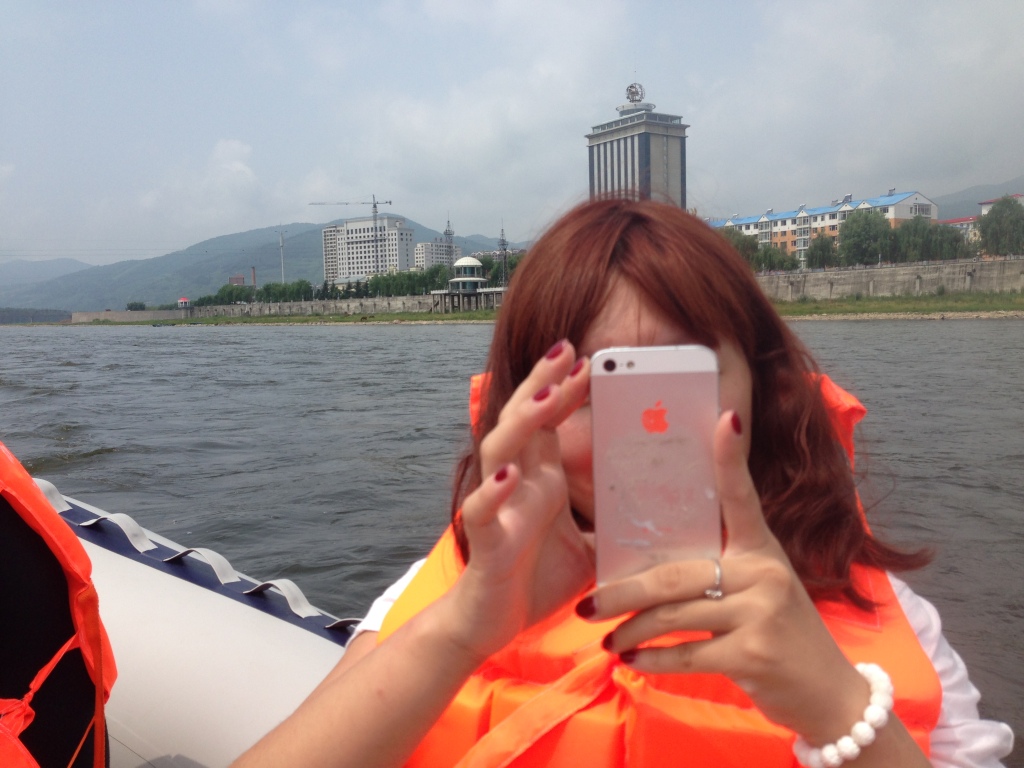
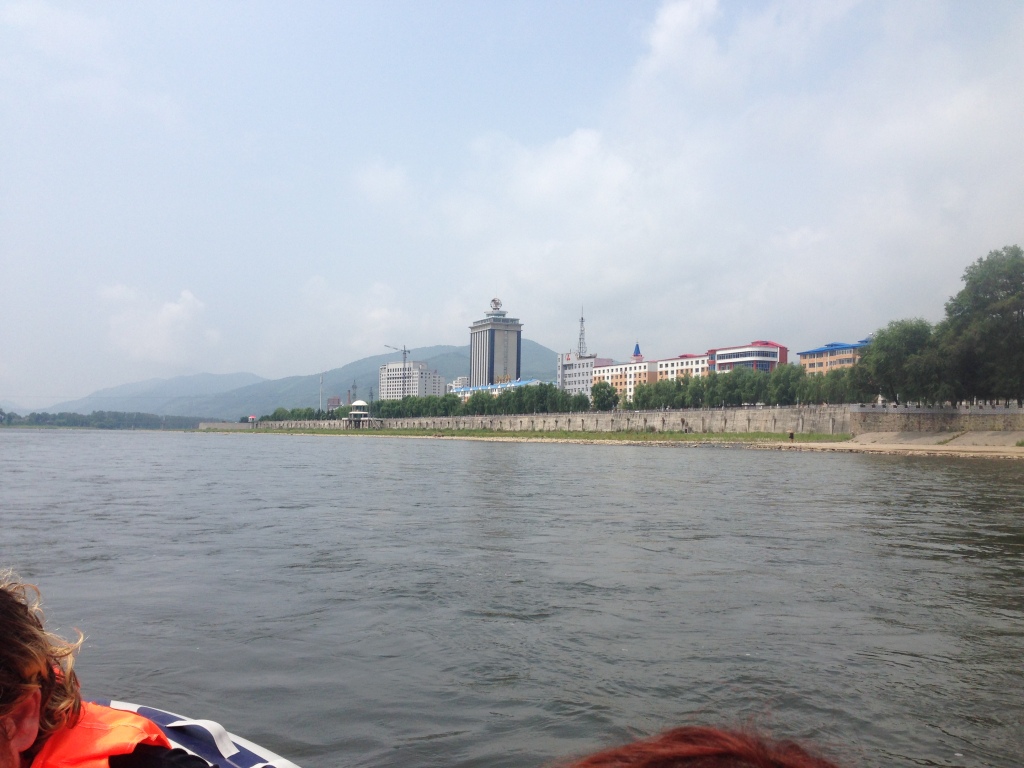
Our friend was waiting for us. We paid up front and were handed bright orange life jackets to wear. The three of us boarded the boat with our driver and we were off down the river.
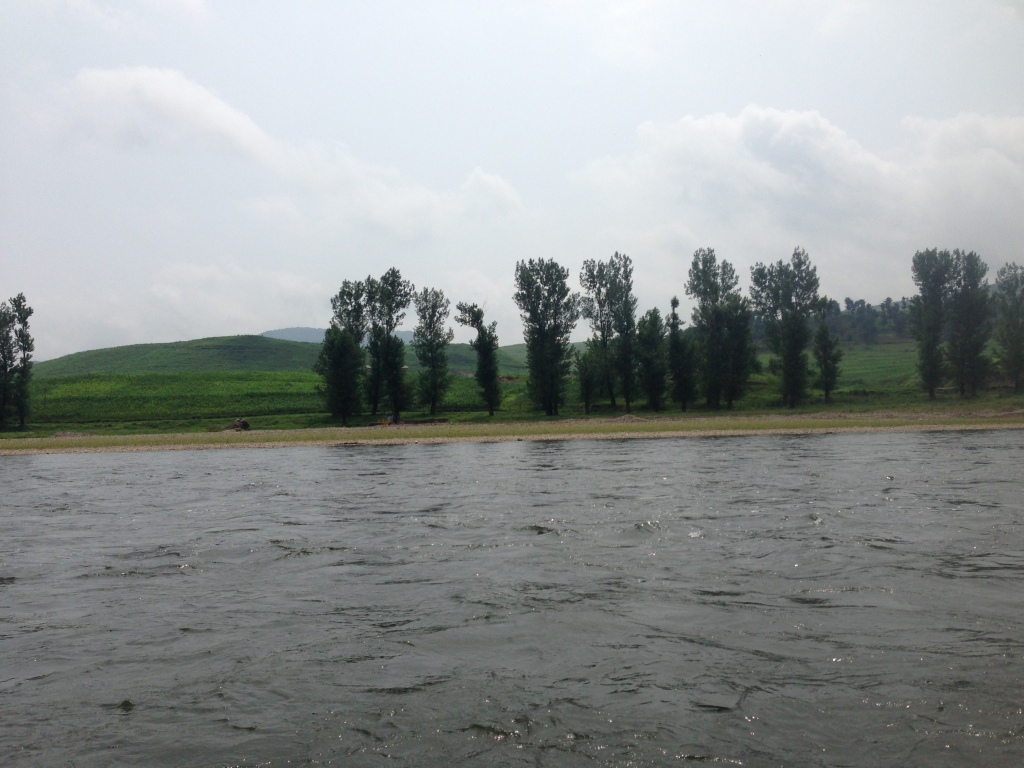
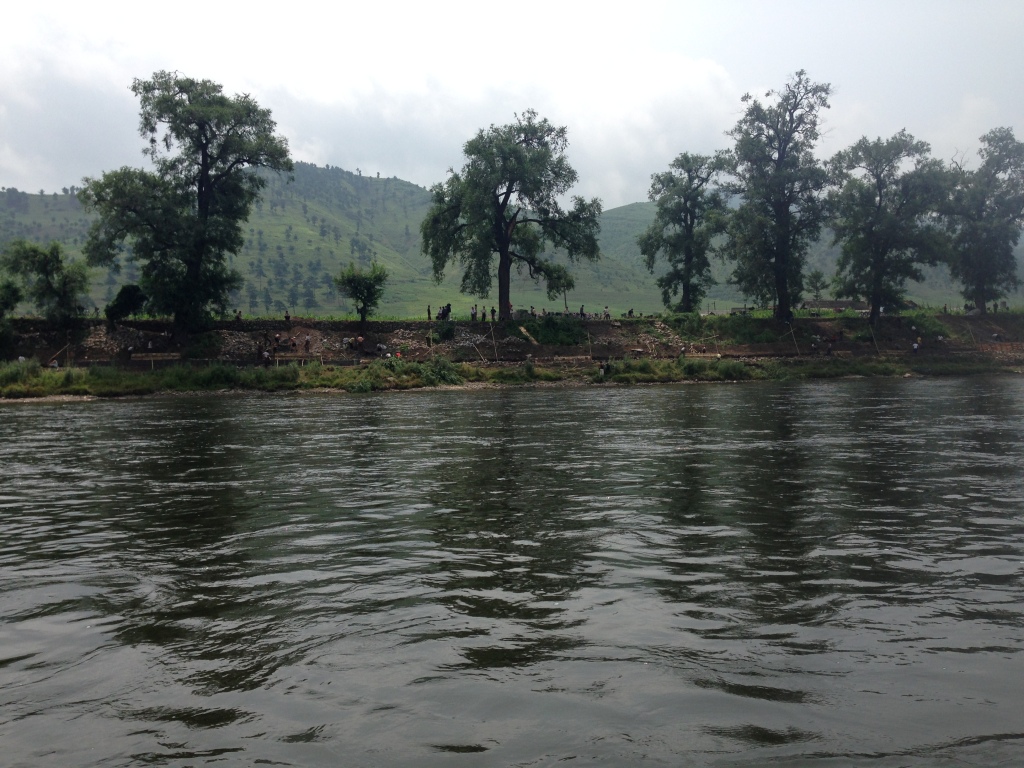
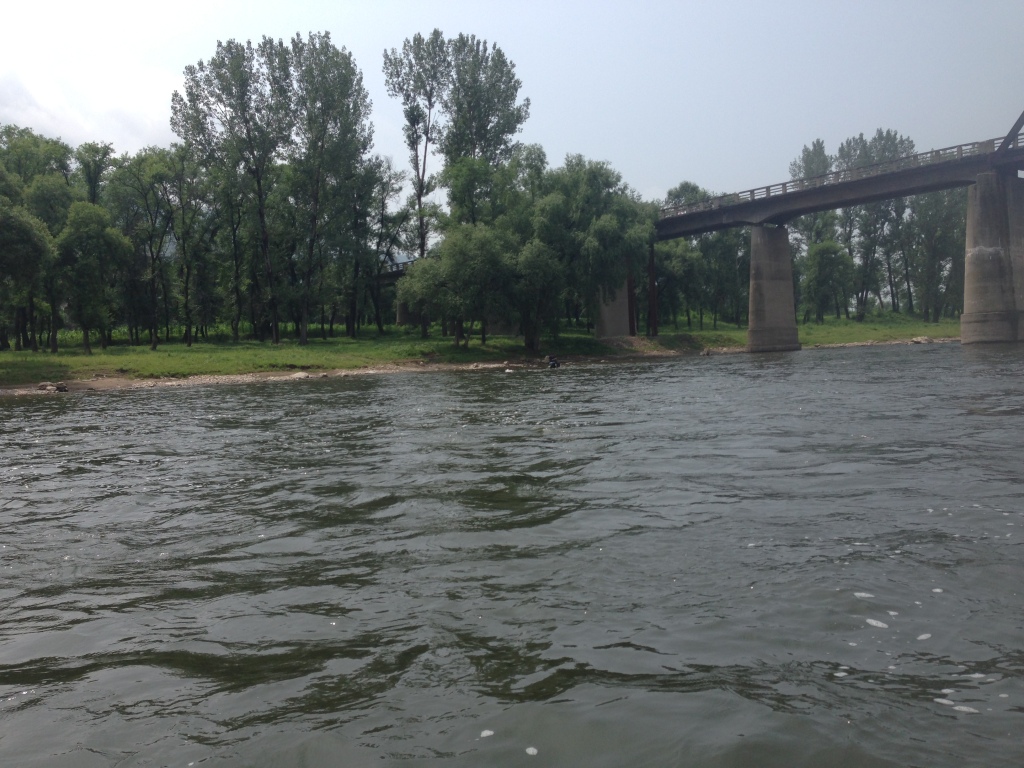
The Chinese side was a built up urban area. Grey skyscrapers and factories filled the riverbank.
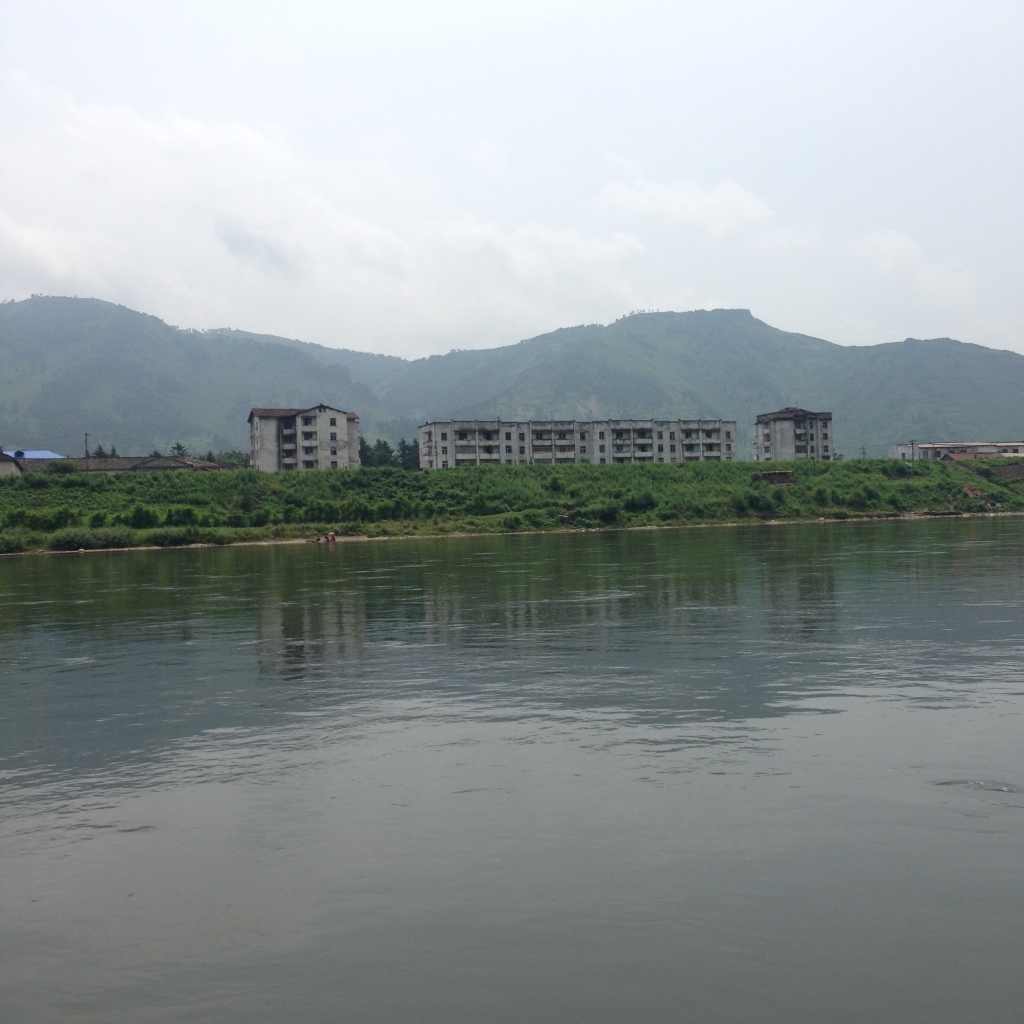
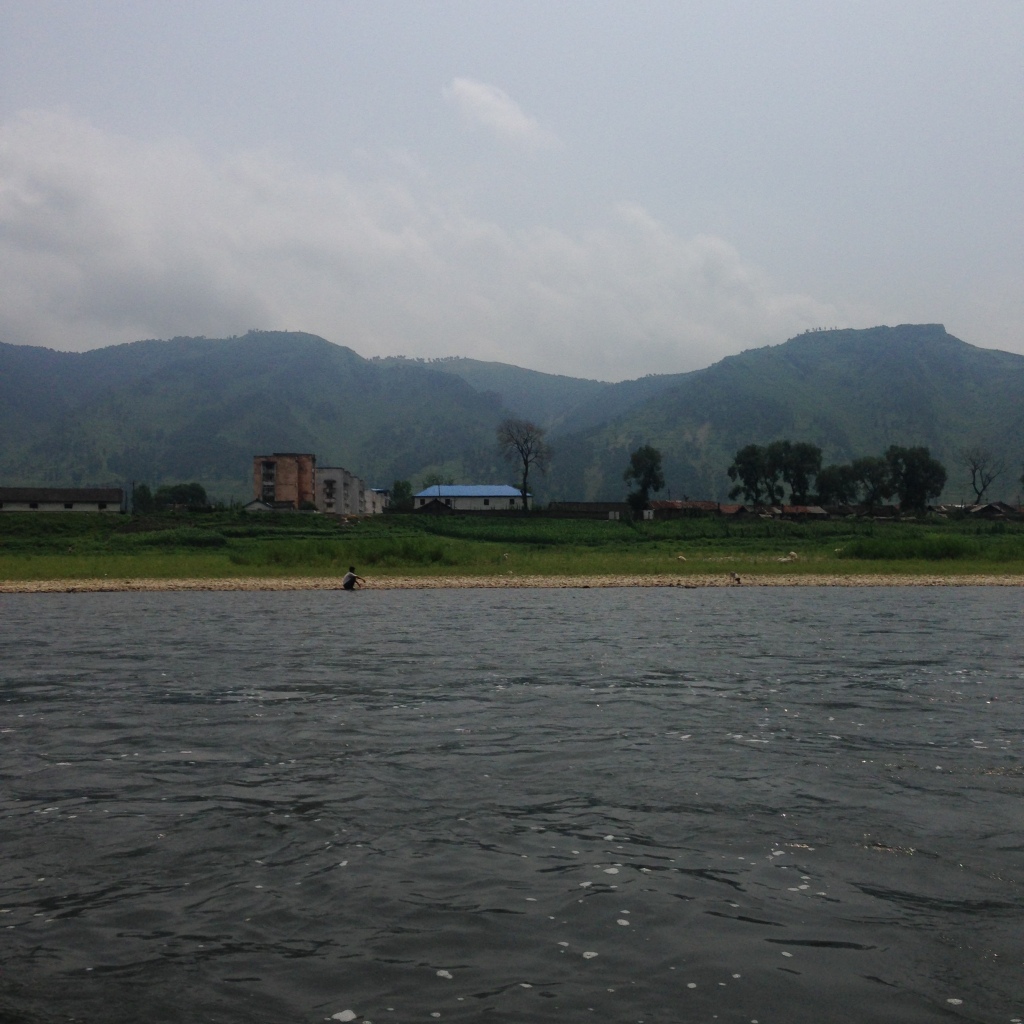
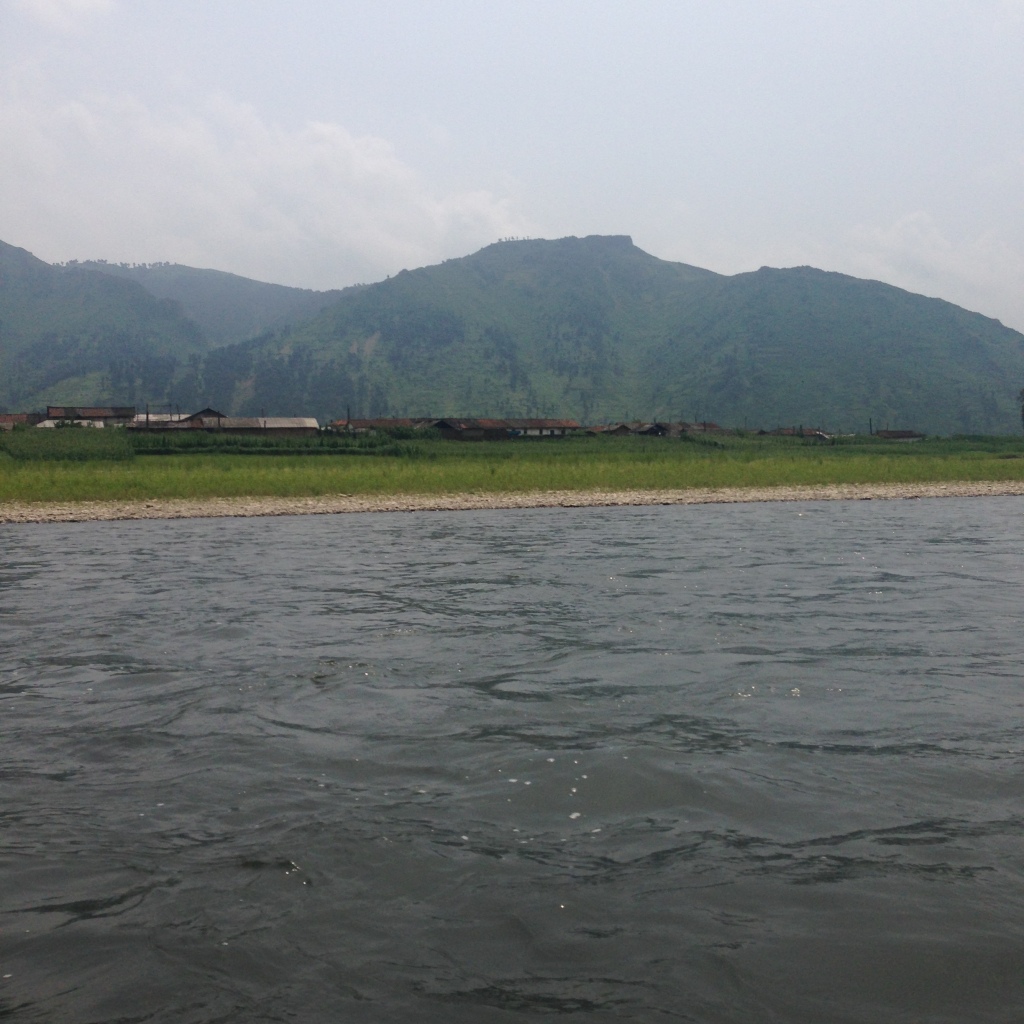
The North Korean side was definitely more of a rural area. Green hills, woods and forests lie beyond a small countryside road. The only thing connecting the two is a railway bridge. Dotted along the riverbank were several small towers. These towers watch out for people trying to cross the river. They were as hidden as they can be, but it was obvious what they were there for.
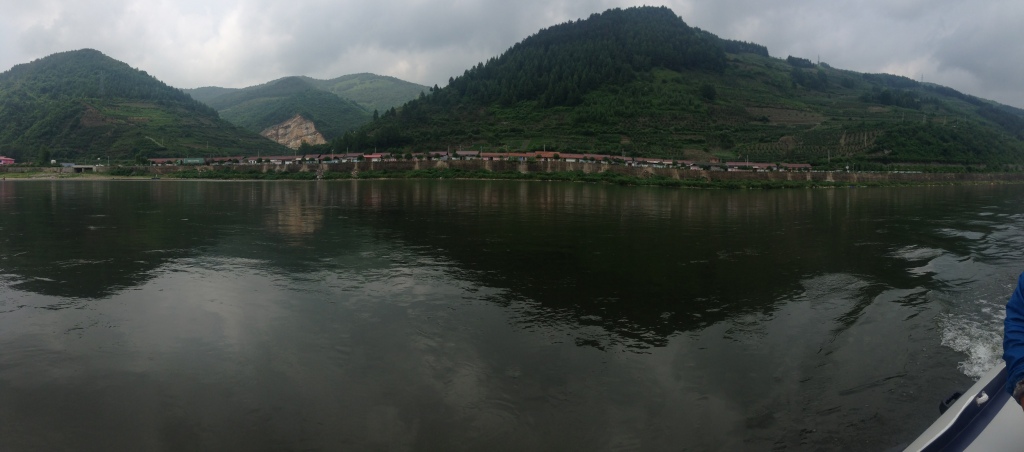
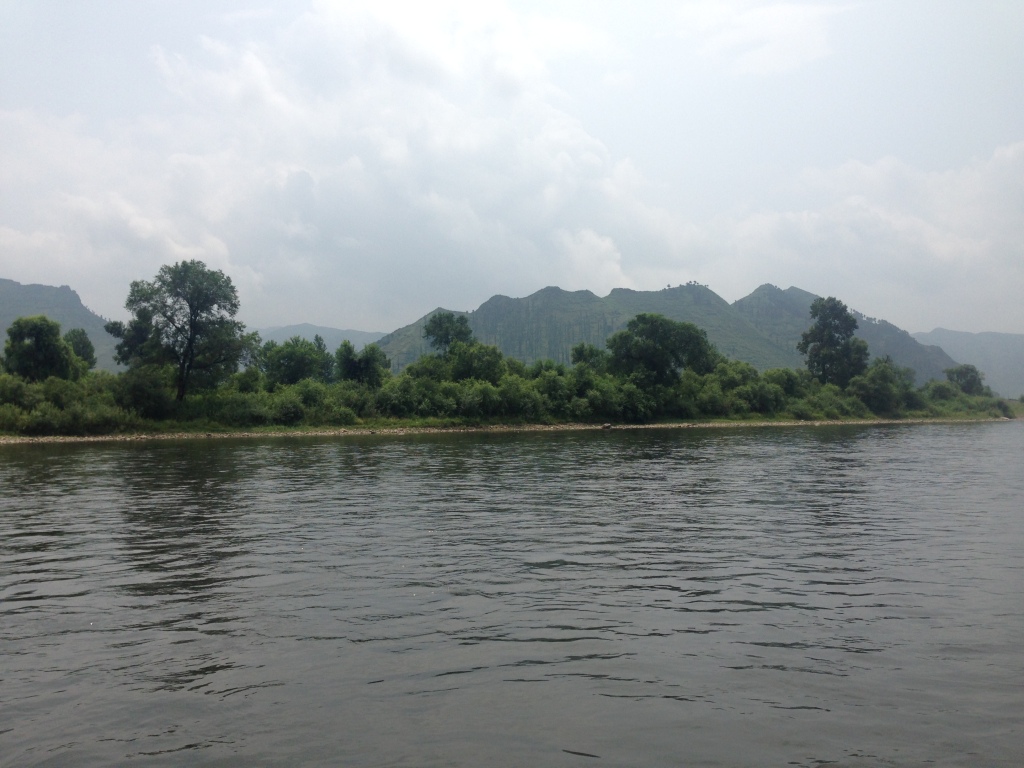
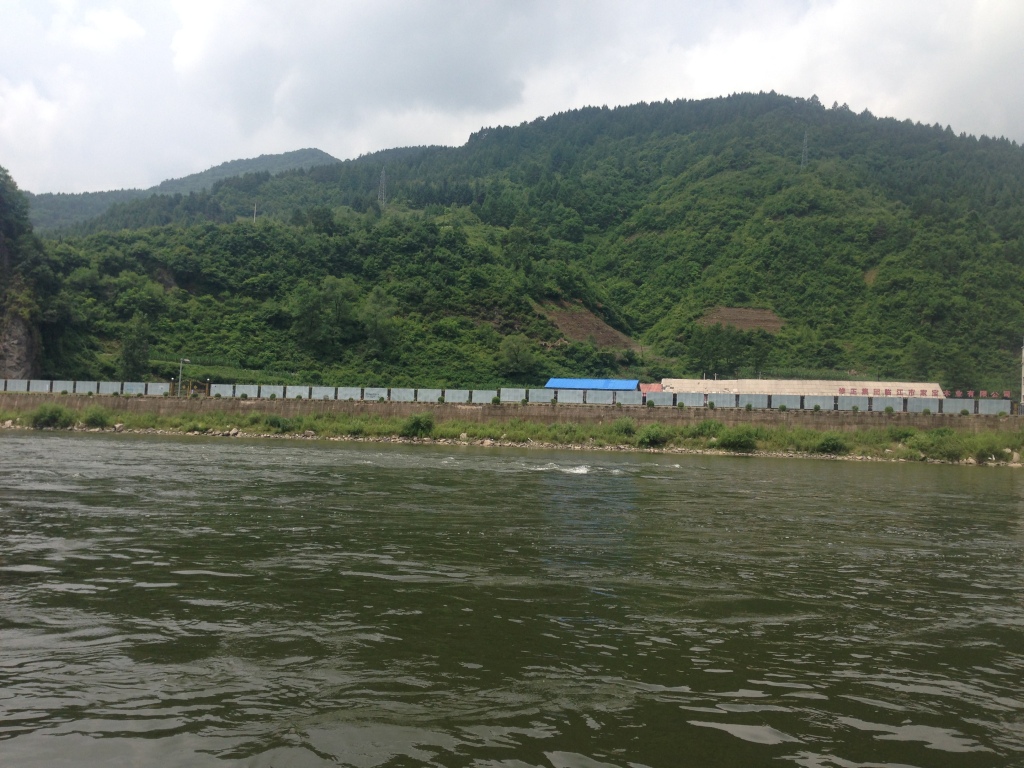
The Koreans lived their lives like any other. They were washing their clothes in the river. The kids were playing in the water. They would often wave at us as we went past. At one point we saw two naked men bathing in the river. They smiled at us and waved. Our boat driver told us this was a common occurrence.
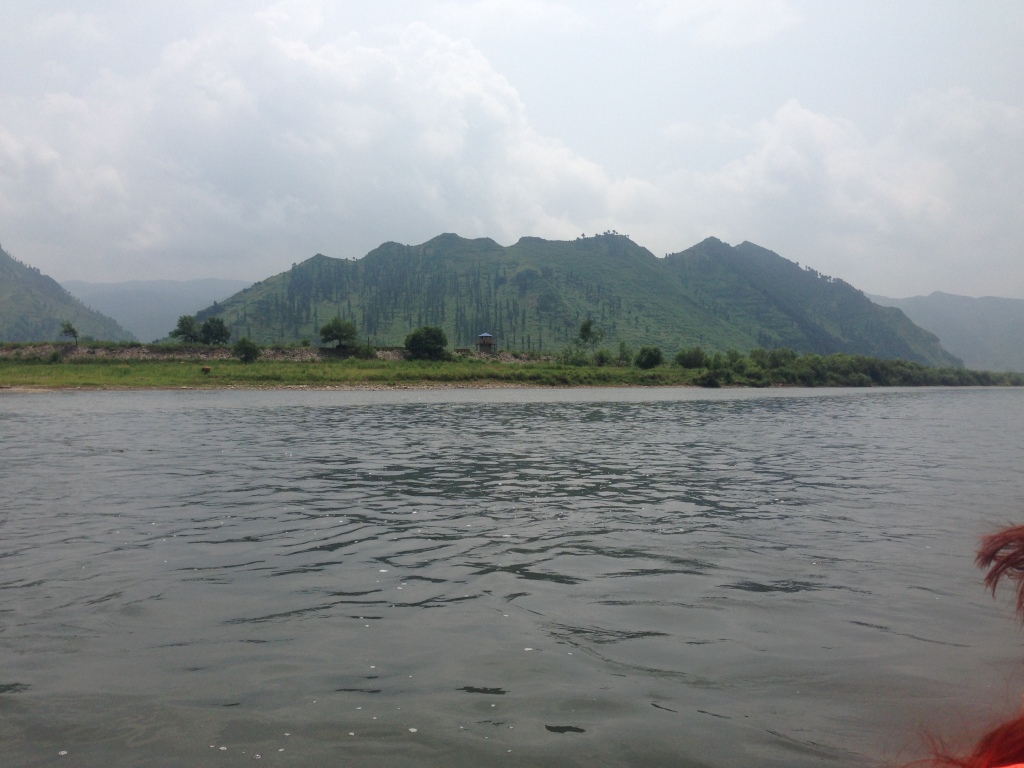
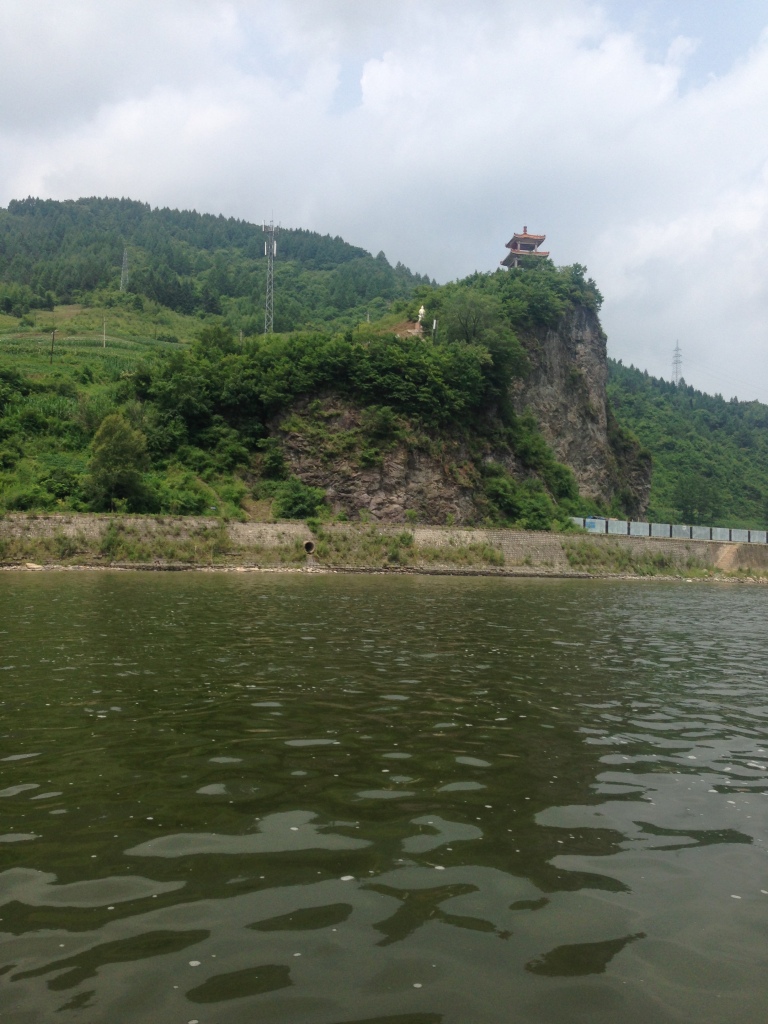
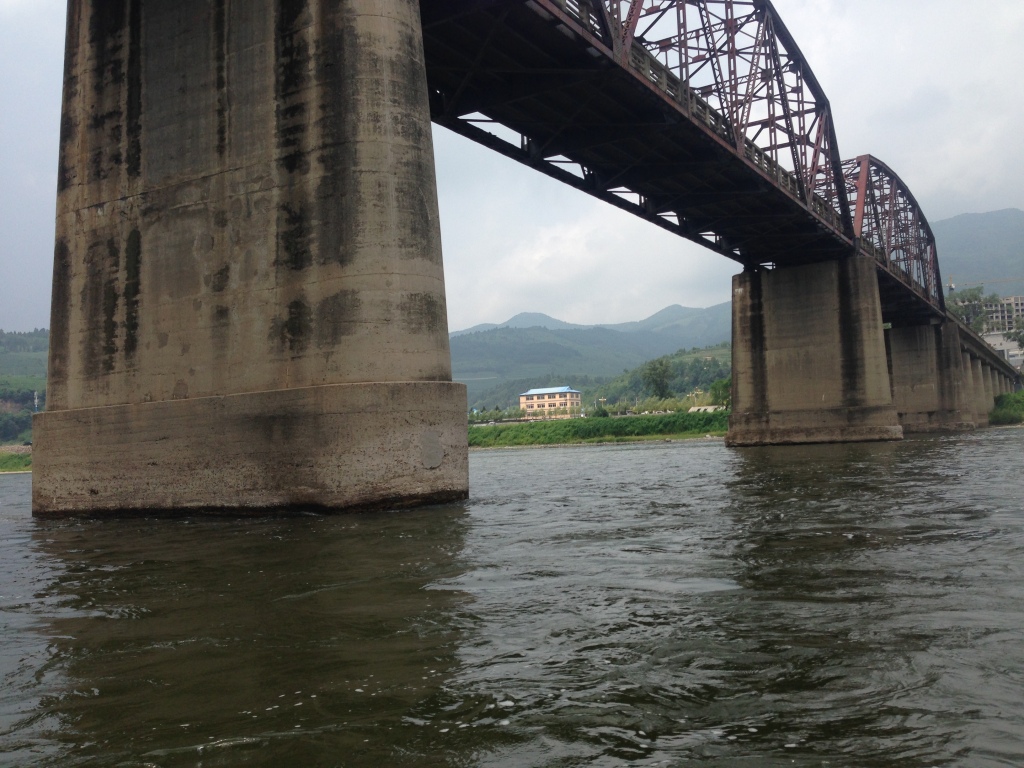
Our boat tour was now over and we headed back to Linjiang proper. It was time to meet Yi’s friend’s uncle who had offered to take us to lunch. I hadn’t eaten yet so I was excited by the prospect of food. Unfortunately not everything was to go quite to plan.

